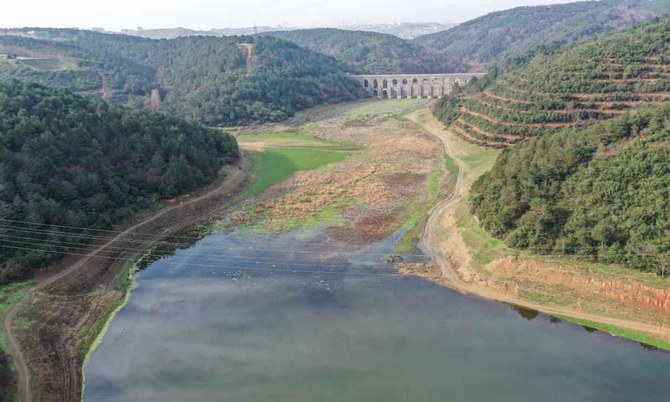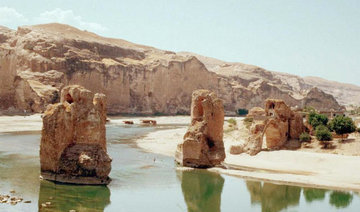ANKARA: Media reports that Istanbul could run out of water in 45 days have been denied by an official from the city’s municipal authority.
Urban planning mismanagement and a record low rainfall are considered to be the main reasons for water scarcity in the city of 17 million people.
The water levels in the main dam that provides Istanbul with water are at their lowest since the last decade and, for the last three years, the water levels of the dams in Istanbul have decreased fourfold.
The Telegraph was among the media outlets reporting that the city was running out of water.
But a municipal official from the relevant authority denied the report. The official, who preferred to remain anonymous, told Arab News that one-third of the dams were currently full and that the city’s reserves had been full since Jan. 9.
Turkey, which has already faced several droughts in the last four decades with its semi-arid climate, is considered water-stressed as it produces only 1,346 cubic meters of water per capita per year.
Dr. Akgun Ilhan, a water management expert from the Istanbul Policy Centre, said the current situation had arisen largely because of a lack of adaptation to climate change. “It is true that we receive less precipitation but on top of that we also make poor use of the water falling on cities,” she told Arab News. “The average public water loss throughout the country is 43 percent due to old and inefficient water infrastructures, which lead to the loss of almost half of the water before it reaches the taps at home.”
The natural forests of the city stretching between the Black Sea and Marmara coasts as well as several rivers and wetlands, which were producing the city’s drinking water, have been destroyed due to the construction of controversial megaprojects.
FASTFACT
Turkey has built hundreds of dams over the last two decades.
Turkish President Recep Tayyip Erdogan’s plan to build a huge artificial waterway linking the Black Sea and Marmara Sea, known as Kanal Istanbul, also sparked concerns among environmentalists. The project puts the city’s freshwater resources at risk by exposing the nearby reservoirs to salinization as it runs too close to a lake that has been providing water to the city since the Roman period.
Ilhan said that Turkey, despite having entered the 21st century, was still continuing with the 20th century’s old water management paradigm by creating more water supply as long as there is more water demand.
“Many metropolitans in Turkey now face drought. The most sustainable strategy in the age of climate change is to reduce water demand instead of increasing the water supply through building more water infrastructures.”
Turkey has built hundreds of dams over the last two decades.
Ankara has enough water for 110 days, with dam occupancy being reduced to 20 percent. Ankara Mayor Mansur Yavas recently suggested introducing tariffs on the use of water as a disincentive.
According to the information provided to Arab News by the municipality’s authority on water management, the impact of the ongoing snowfall on the city’s water levels would only be felt in the spring as the dams that provided the city with water were in the suburbs and required time to transfer the underground water to the city center.
The capital’s water needs remain acute. In the western province of Izmir the main dam of the city has depleted to 36 percent.
Ilhan explained that one way of managing the problem was to oblige local authorities to reduce the 43 percent water loss to a more acceptable level through legal instruments and economic incentives.
“At the same time, local authorities can make greywater reuse and rain harvesting technologies obligatory for the new constructions in the cities. Local governments should also improve urban green areas management for fixing the already damaged water cycle. Citizens should also reduce their water consumption by changing their consuming habits. Everything we buy has a water footprint. The more we buy things, the larger water footprint we create.”




























